Language
- Deutsch
- English
- Español
- Français
- Italiano
- Nederlands
- Português
Currency
- AUD Australian Dollar
- CAD Canadian Dollar
- EUR Euro
- GBP Pound Sterling
- SGD Singapore Dollar
- USD US Dollar
- ZAR Rand

Walking along the banks of Zambia's Luangwa River, watching the antics of kingfishers and African fish eagles over the water, all while following a guide tracking giraffe prints; this is what a really wild African safari entails. Sometimes, your own two feet are the best way to experience the wild wonders of the African bush.
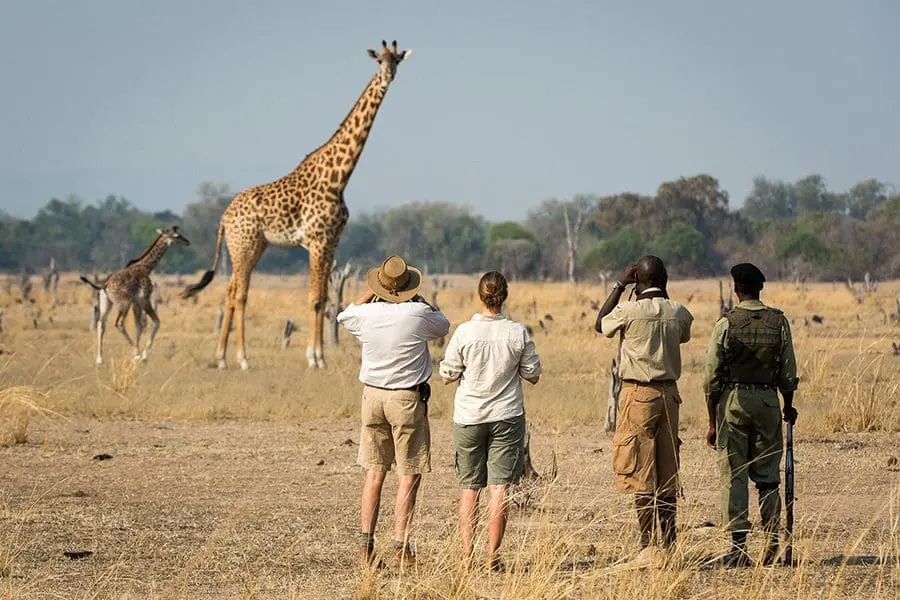
As the birthplace of walking safaris, South Luangwa is a great place to get out there, awaken your senses and really experience Africa. Robin Pope has been guiding mobile walking safaris through the area since the early 1990s and believes that when you walk in the wild, you become a part of your environment and enjoy a really authentic safari experience.
Depending on the time you have, your fitness level and your need for modern creature comforts, you can choose between a classic 8-day walking safari, sleeping in luxury tents in temporary camps in the middle of the bush, or short nature walks between other safari activities.
Although you may be able to travel further in a vehicle, on foot you can reach places that a 4×4 can't. You will also be closer the tapestry of smells, sounds and signals of the bush, like noting where a porcupine dragged its quills during the night, where frogs have spawned or how dung beetles tackle their crucial task so diligently.
A walking safari in Zambia, especially in South Luangwa National Park, is truly the epitome of exceptional experiences. Each time you step foot into the wild wonder of Africa there will be new tracks, different animals, varied weather, and even guides.
Feel the rumble of elephant footsteps and their trilling trumpeting, observe giraffe as they elegantly fold down to reach water, and hear the never ending chorus of birds. A walking safari ensnares all your senses and creates a truly immersive experience.
While a lot can be observed on a game drive, a walking safari provides an entirely new perspective and allows access to previously unreachable places. Not only is there plenty to see, but so much to learn. A South Luangwa walking safari is always accompanied by knowledgeable, passionate guides keen to share what they know, and teach those who are willing to listen. When planning a Zambia safari, don't forget to consult our list of the best places to stay in South Luangwa.
In the wise words of Norman Carr, the man who founded walking safaris in South Luangwa back in 1950:
“You do not know a place, until you have walked it.”
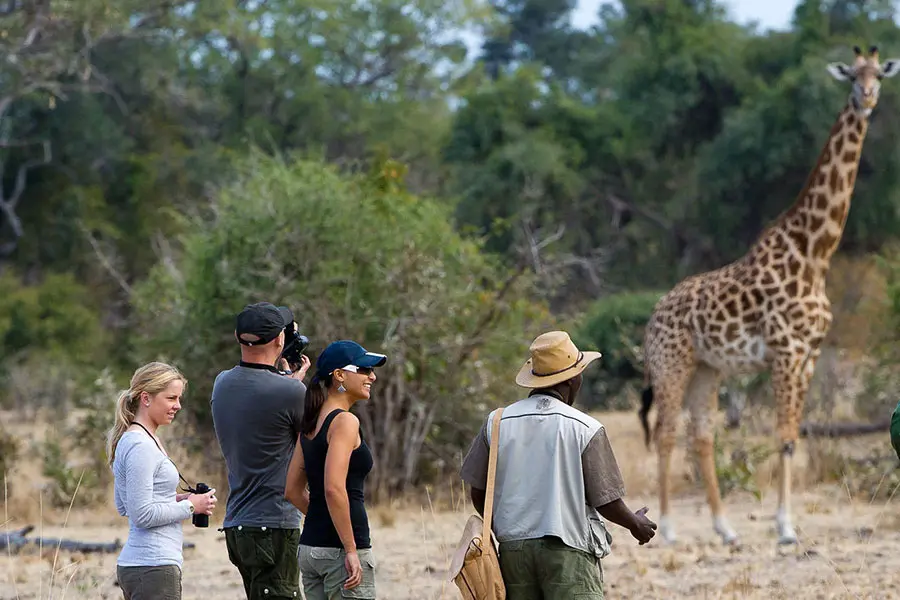
The perfect person for a walking safari is largely determined by the type they wish to embark on. For multi-day treks with mobile camps, perhaps a more seasoned safari-goer. Half- or full-day walking safaris are typically achievable for most, and those spanning just a few hours are the easiest in terms of fitness level. Several camps and lodges also offer lighter ‘bush walks' which don't span too far from their start point.
While fitness does come into play, what to pack for a walking safari is equally important. Keep in mind that a walking safari is not a route march, and maintains a steady pace with frequent observational stops. However, we can guarantee that new boots will make for blisters and a less than ideal experience – please make sure you break them in beforehand!
Our top piece of advice when it comes to being an ‘ideal candidate' is to select a walking safari you would really like to do and prepare from there. Go2Africa's African Safari Experts are always on hand to ensure you know what's in store and how to prepare.
Please note that walking safaris have an age limit for the sake of safety and stamina. However, a few camps and lodges offer child-friendly nature walks to keep the little ones entertained and engaged.
Help Me Plan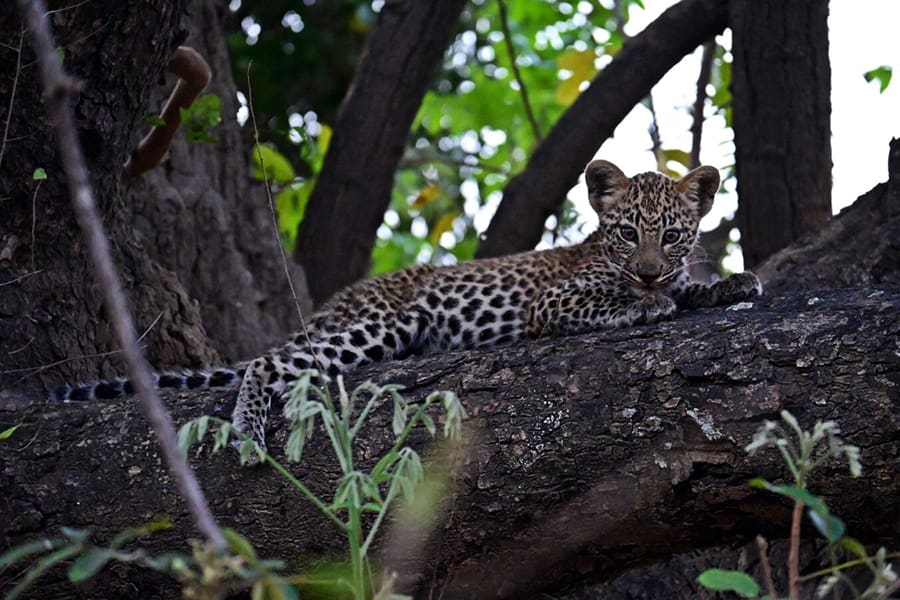
A Robin Pope guide, Jason Alfonsi, explains why walking safari encounters are so extraordinary:
‘These interactions can bring wonderful experiences and we are highly trained to safely appreciate them when we are in the right place at the right time. With our armed escort and experience, these exchanges can be enjoyed and appreciated when they happen. It is wonderful to see a baby zebra being nuzzled by its mother or watch the way monkey family members interact with each other.'
Walking safaris also provide you with a freedom incomparable to any other safari activity. Once on foot, you are not constrained by roads and can go almost anywhere you like. The guides each boast an extensive knowledge of the flora and fauna in the area. A pile of bones on the side of the trail or an interesting insect can lead into an in-depth explanation, often coupled with fascinating first-hand guide experiences and stories. You can learn more about the African wilderness on a walking safari than you've learnt in your whole live, and walk away with a newfound respect for even the smallest of creatures and plants.
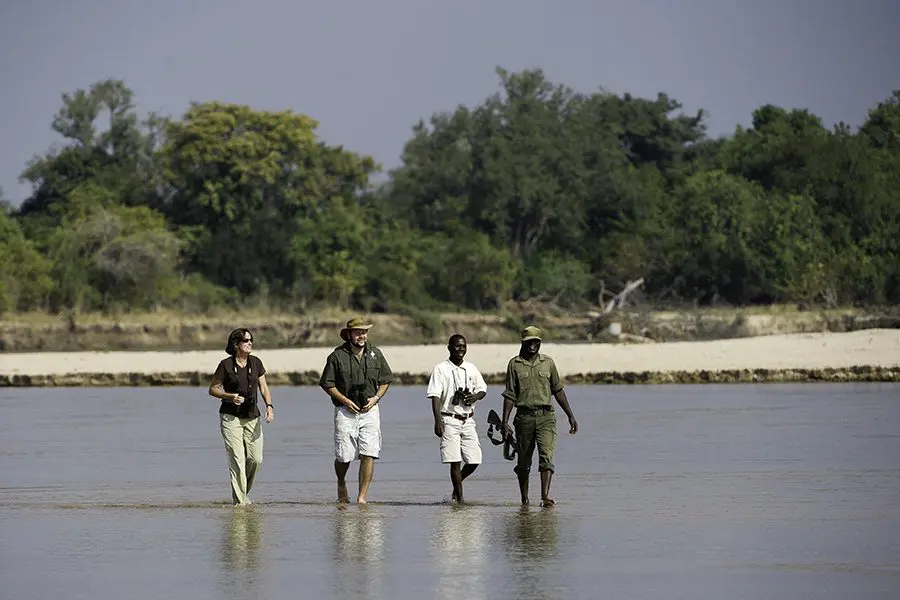
Guides track animals using signs and clues to unravel the story of their recent movements in an effort to provide you with fantastic animal encounters and bird sightings in South Luangwa. Of course, a safe distance is always maintained and respect for the wildlife in their territory is upheld as the primary rule.
As Jason says, ‘As a guide we cannot push or force experiences. Everything has to fall into place naturally. We do not want to create expectations in our guests that we cannot fulfil. Giving the animals as much time as they need to decide on their course of action and not rushing them usually leads to more interesting encounters.'
Predicting animals' likely behaviour is central to a good guide's job. Jason shares one of his most memorable encounters:
‘This happened when I did a short walk with the group in the late afternoon. We had just got into the park and came across a big bull elephant several hundred metres away across a lagoon bed. We stopped and I reminded the group once again how to behave in the wilderness. We planned a quick walk around the lagoon into the woodland to approach the bull from the tree line and slipped in behind a big bush so we could watch without disturbing him. At this point he was about 70m / 230ft away from us. It is often hard to see if habituated elephants know that you are there or not as they sometimes simply do not react to humans in any way at all. Wild elephants usually react so you know that they have seen, heard or smelt you. As we watched him, he slowly started moving across in front of our bush.
One of the best parts of guiding is sharing your guests' excitement. He took his time but I had calculated that the path he was taking would bring him about 15m / 50ft in front of us. I reminded everyone to be very quiet and still. As he arrived in front of our bush, he stopped to rest his trunk on the ground, giving the guests a wonderful view of his tusks and massive feet, which are specially adapted to carrying his enormous weight. Then he began delicately breaking off the fresh shoots of leaves, feeding them into his mouth with obvious relish. We were so close that we were able to almost count his long eyelashes and see the individual bristles on his hide through our binoculars. Elephants' eyes show their intelligence and emotions, and my guests got superb close-up photos of this young guy.
After taking his time feeding, he turned his head and stared at us for what seemed like ages, then turned and ambled off again. He knew we were there all along and decided to play ‘peek-a-boo' with us. He did not trumpet so he wasn't scared – he was just acknowledging our presence. It was such a moving experience that we all quite silent on our walk back to camp. Elephants are my favourite animal and they are still teaching me things.'
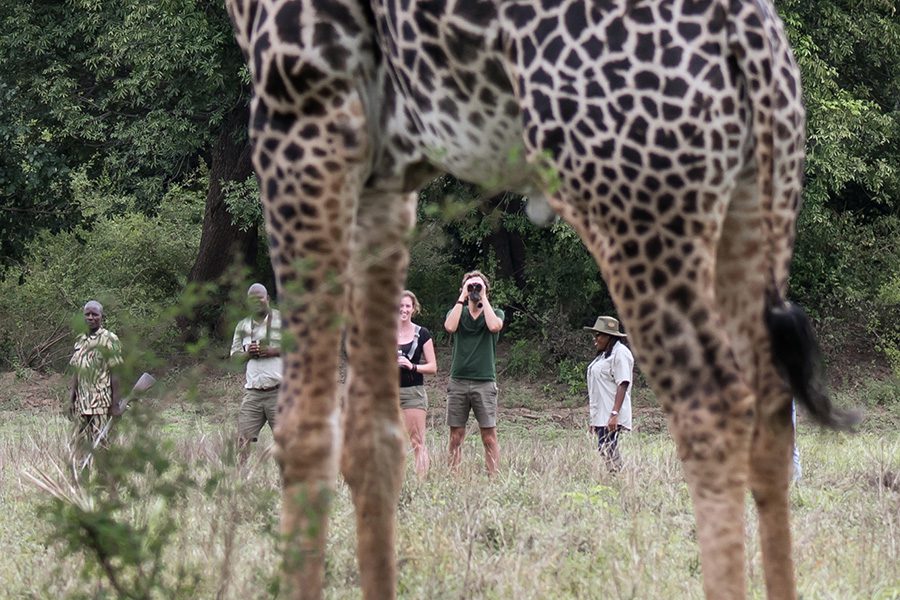
The term ‘walking safari' is used more of an all-encompassing term for several types of walking excursion, rather than a definition of one thing. An on-foot adventure comes in various forms, from the multi-day trek we mentioned to a more brief bush walk.
For a multitude of experiences, sights, and sounds, it may even be worth combining destinations to make the most of your African safari. If that appeals to you, have a look at our recommended Zambia safaris and make the most of everything it has to offer.
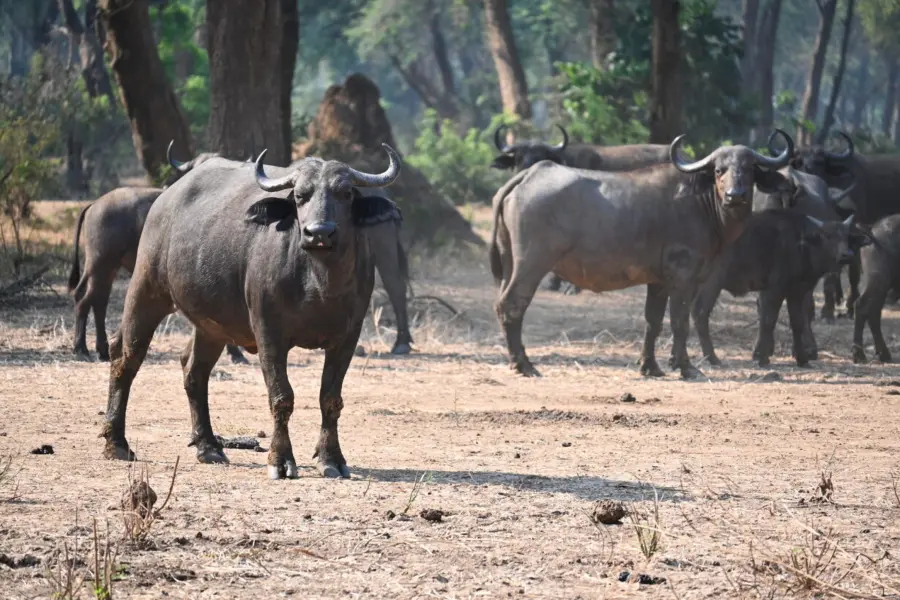
Winter starts in June or July, which is also the dry season in Zambia. Days are warm and sunny but can get chilly at night. September brings hot, hazy weather. It's an excellent time for game viewing and bird watching. In October it can get very hot with temperatures going up to 40°C / 104°F in the shade. This is the end of Zambia's dry season.
Mobile walking safaris and bush camping – June to October (dry winter months)
Bush walks – all year round. There are a few exceptions to this rule where camps or lodges will choose certain months where walking safaris are available.
A moderate level of fitness is required for all options (mobile walking safaris cover up to 10km / 6mi a day with frequent stops).
Comfortable walking shoes, insect repellent, a wide-brimmed hat with a chin strap, sunglasses, high SPF sunscreen, a torch, binoculars, and a camera with spare memory cards and batteries.
Now that you’ve heard all about the best parts of walking safaris, and why it’s a must-do safari activity, it’s time to experience it first-hand. Chat to one of our safari experts who can carefully curate the perfect South Luangwa walking safari, tailored to you.